Best soil for cherry tomatoes and watermelons (Growing cherry tomatoes and watermelons)
Growing cherry tomatoes and watermelons in field cultivation. This time, we will perform “soil preparation" by applying fertilizer to the cultivation plot. (Best soil and fertilizer for cherry tomatoes and watermelons.) For cherry tomatoes, we will use cattle manure compost and chicken manure, and for watermelons, we will also use cow manure, chicken manure, and canola cake.
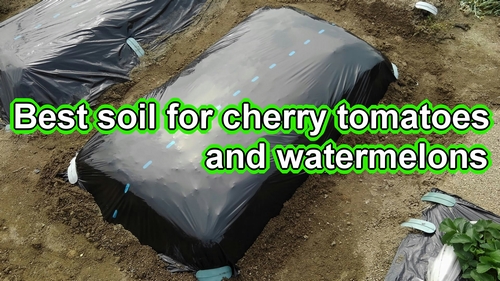
The size of the cultivation area for cherry tomatoes and watermelons is both about 60cm x 60cm (about 2 feet x 2 feet). We will cultivate cherry tomatoes on half of the 60 x 120cm (2 feet x 4 feet) bed and watermelons on the other half. We will mix compost and fertilizer into this plot to create soil suitable for cultivation.
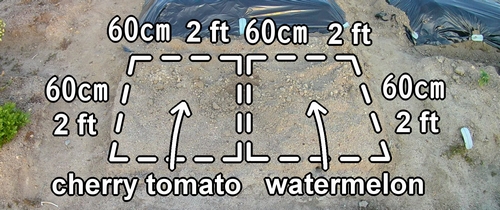
Soil for cherry tomatoes and watermelons (The base fertilizer consists of organic fertilizers such as chicken manure and canola cake)
Both cherry tomatoes and watermelons are grown through pesticide-free organic cultivation, so all fertilizers used are organic. For the cherry tomatoes, the base fertilizer (applied before planting) consists of 1 qt of fully ripened cattle manure and 1.76 oz of fully matured chicken manure. (Best organic fertilizer for cherry tomatoes)
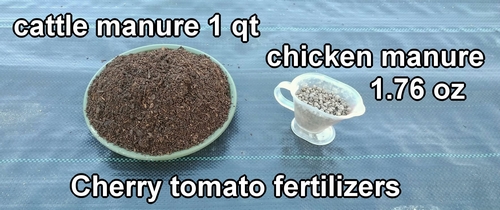
For the watermelons (icebox type), the organic fertilizer consists of 1 qt of fully ripened cattle manure, 1.76 oz of fully matured chicken manure, and 1.76 oz of canola cake. (Best organic fertilizer for watermelon)
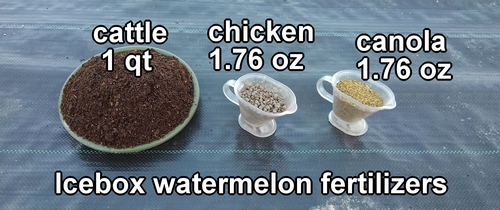
For the organic fertilizers used in growing cherry tomatoes and icebox watermelons, cattle manure is primarily used as compost rather than as a fertilizer. Mixing cattle manure compost into clayey soil can be expected to improve the soil quality. Cattle manure compost is compost made from cattle manure, but it is fully matured and fermented, so there is almost no unpleasant odor.
Fully matured chicken manure and canola cake are included as the base fertilizer. Canola cake, which is the residue left after squeezing soybeans or canolas, is rich in nitrogen as a fertilizer component. (Nitrogen is essential for the growth of vegetable stems and leaves.)
Chicken manure is an organic fertilizer made by drying and fermenting chicken droppings. I am using granulated chicken manure. Chicken manure contains a balanced mix of nutrients such as nitrogen, phosphorus, and potassium, which are essential fertilizers. As for its usage, chicken manure is commonly used not only as a base fertilizer like in this case, but also as a supplementary fertilizer for additional-fertilizing.
Cattle manure compost, canola cake, and chicken manure are spread and mixed into the plots for both cherry tomatoes and icebox watermelons.
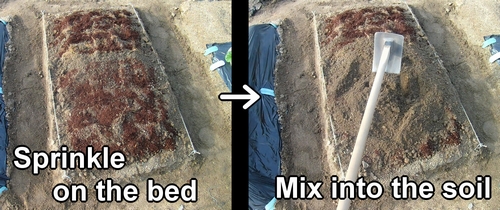
After adding the fertilizer, dig the section of the plot to a depth of 30cm (1 ft). You can use the length of the shovel blade, which is about 30cm, as a guide for the depth. If digging is difficult, you can simply cultivate the soil with a hoe. (Since the drainage of the plot I am renting is not very good, I decided to dig deeper than usual to improve it as much as possible.)
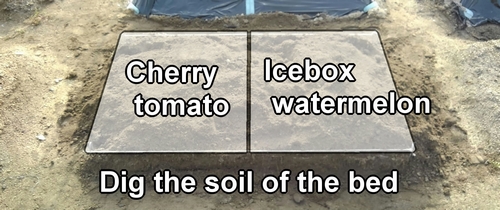
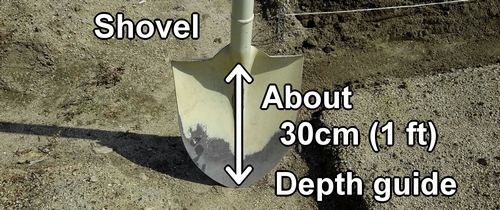
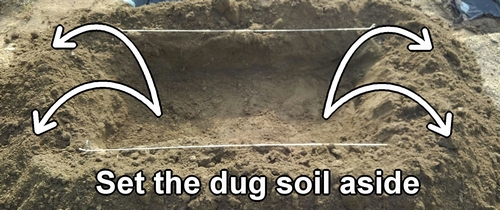
How to make the bed for cherry tomatoes and watermelons (Best soil for cherry tomatoes and icebox watermelons)
Return the soil to the dug area and create raised bed for growing cherry tomatoes and icebox watermelons. The trick is to gently mound the soil while allowing air to be incorporated. This increases the “fluffiness" of the soil and creates height in the raised beds.
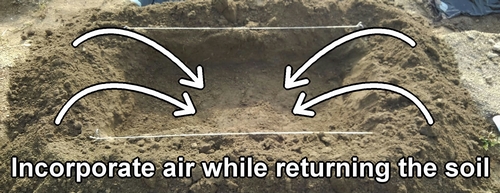
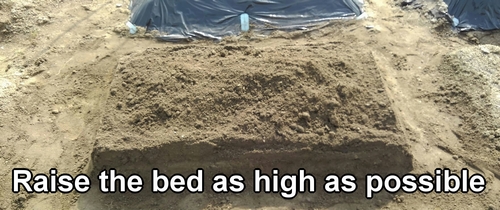
To prevent soil from collapsing, shape the bed with a trowel and wooden boards. Make the top of the bed flat and compact the sides slightly for added strength.
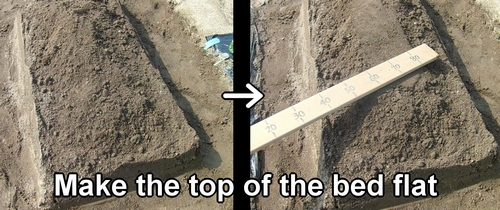
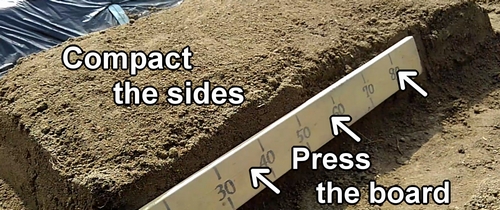
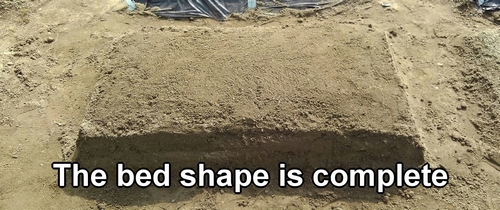
Afterward, cover the bed with black polythene mulch, and secure the mulch with mulch pins. The bed for cherry tomatoes and icebox watermelons are completed. By raising the bed, the water drainage and ventilation have improved, and I believe the cherry tomatoes and icebox watermelons will establish strong roots.
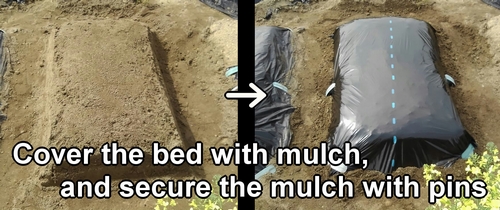
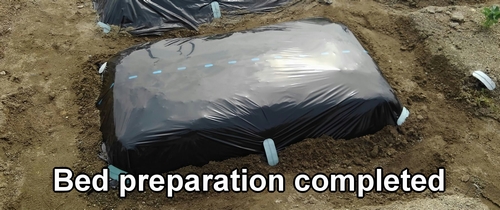
Following is the video for how-to. English subtitles are available.

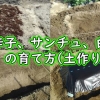
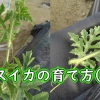
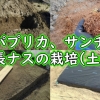
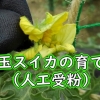
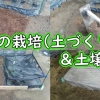
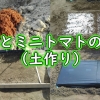



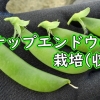
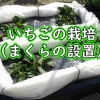
ディスカッション
コメント一覧
まだ、コメントがありません